A futuristic agenda for India & Canada
India can draw Canada in a new direction – away from its trans-Atlantic fixation, into the Indo-Pacific and a tech and resources partnership that will benefit both democracies
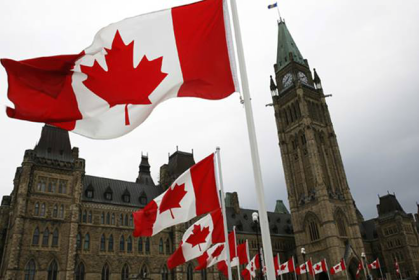 Courtesy: Financial Express
Courtesy: Financial Express
India can draw Canada in a new direction – away from its trans-Atlantic fixation, into the Indo-Pacific and a tech and resources partnership that will benefit both democracies
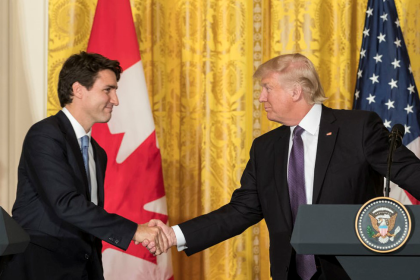 Courtesy: Wikimedia Commons
Courtesy: Wikimedia Commons
The United States, Europe and the Asia Pacific today form Canada’s tripartite foreign policy priorities. The ASEAN is its sixth largest partner, which was not so 20 years ago, but economic engagement with India – still small, compared to China and Japan – has scope to grow
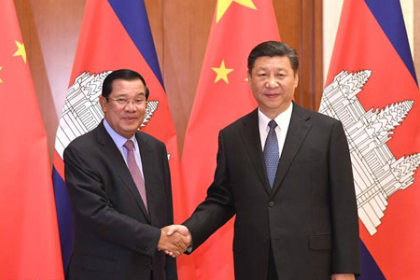 Courtesy: Ministry of Foreign Affairs, China
Courtesy: Ministry of Foreign Affairs, China
In Cambodia, democracy exists only in form. Liberal values, inculcated by the West, take second place to poverty alleviation and employment. Such priorities have affected its diplomatic allegiances while bilateral relations with India have not expanded
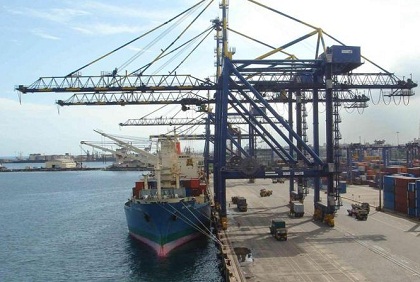 Courtesy: Deccan Chronicle
Courtesy: Deccan Chronicle
A major upcoming international conference on the Blue Economy in Nairobi in November will focus on the impracticalities of pursuing any one goal – such as sustainability – to the exclusion of business. In fact, the many interests at stake need not be in conflict with one another, to realize the goal of a true blue economy, in which business must have a significant stake.
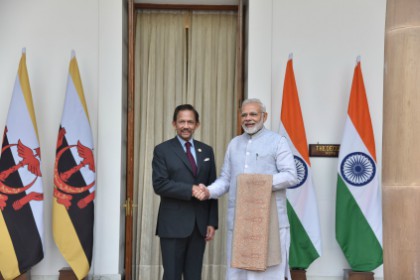 Courtesy: MEA/ Flickr
Courtesy: MEA/ Flickr
India and Brunei have a 34-year-old diplomatic relationship; but as yet no Indian president or prime minister has paid the country a bilateral visit to strengthen these ties. The strategically-located nation is rich in its history, with a unique political system. Its foreign policy approach is non-controversial, yet noticeably pragmatic.
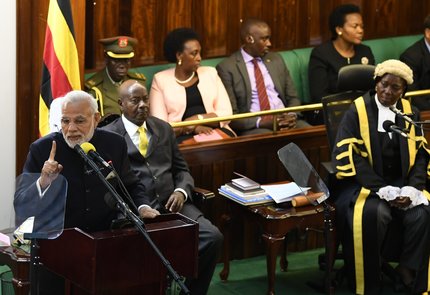 Courtesy: MEA/ Flickr
Courtesy: MEA/ Flickr
Africa today holds great economic allure for the major powers, which are looking to deepen their partnerships with it. India, which shares a rich past with the continent, has been adopting many measures to step up economic diplomacy in the region
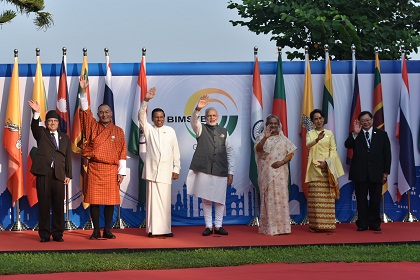 Courtesy: Mea/ Flickr
Courtesy: Mea/ Flickr
The 21-year-old regional organisation, which will hold its fourth summit on August 30-31, was formed because of the opportunities to make headway in economic and social development through cooperation, but it has achieved modest success. It has a relevance independent of SAARC or ASEAN and goals of its own to pursue
 Courtesy: Global Environment Facility
Courtesy: Global Environment Facility
Since Independence, India has been consumed by its domestic priorities. Now, with increasing integration with the world and a huge stake in global stability, it is time to focus on the global commons. India has a seat on the hightable to design and shape the rules for the governance of the global commons. In this special Independence Day Briefing, Gateway House examines India’s engagement with four global commons – technology, outer space, cyber and the oceans – and makes recommendations on how best they can be governed for our collective future.
 Courtesy: Tide of Fortune: A family tale, by Manubhai Madhvani
Courtesy: Tide of Fortune: A family tale, by Manubhai Madhvani
Indian Prime Minister Narendra Modi’s visit to Rwanda and Uganda, en route to the BRICS Conference in South Africa (July 25-27), is significant as it is a rebolstering of ties with these East African landlocked nations through their Indian diasporas, ties that will be cemented further by cooperation in defence, finance, education and other sectors. The Bombay Presidency once played a key role in the development of this region
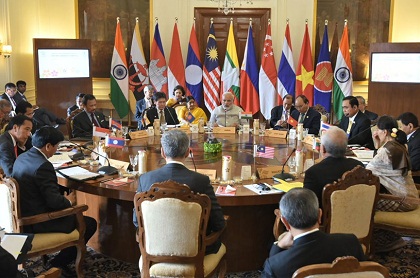 Courtesy: Zee News
Courtesy: Zee News
Indonesia and Malaysia appreciate India’s leadership role in the Indo-Pacific, but are also aware of all that keeps it from delivering on its commitments. A policy visit to the two countries enabled a closer look at some key issues, such as ASEAN’s centrality, the Quad and India’s stand on the Regional Comprehensive Economic Partnership